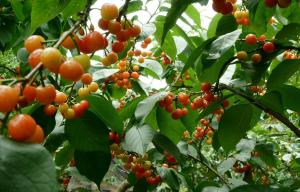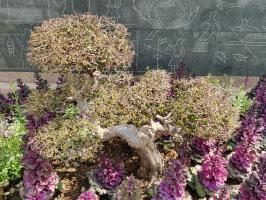How to use tap water for plants
Tap water is a convenient and readily available source of water for most households. However, tap water may not always be the best option for watering plants. Tap water can contain chemicals such as chlorine and fluoride, which can be harmful to plants. In this article, we will discuss how to use tap water for plants in a safe and effective way.
1. Let the tap water sit before use
Before using tap water to water your plants, it is best to let the water sit for a few hours. This allows the chlorine and other chemicals to dissipate from the water. Once the water has been left to sit for a few hours, it is ready to be used to water your plants.
2. Use a water filtration system
If you are concerned about the quality of your tap water, you may want to consider investing in a water filtration system. There are many different types of water filtration systems available on the market, ranging from simple pitcher filters to whole-house filtration systems. A water filtration system can remove impurities from tap water, making it safe for plants to drink.
3. Consider the pH level of tap water
The pH level of tap water can vary depending on where you live. Some plants prefer acidic soil, while others prefer alkaline soil. It is important to test the pH level of your tap water before using it to water your plants. You can purchase a pH testing kit at most garden centers or online. Once you know the pH level of your tap water, you can adjust it as necessary to suit the needs of your plants.
4. Water your plants effectively
When using tap water to water your plants, it is important to do so effectively. Overwatering can be just as damaging to plants as underwatering. Be sure to water your plants deeply, allowing the water to penetrate the soil and reach the roots. Avoid watering the foliage of your plants, as this can lead to fungal diseases.
5. Use tap water sparingly
While tap water can be a convenient source of water for plants, it is important to not rely on it too heavily. Tap water can contain trace amounts of minerals and other substances that can build up in the soil over time. To avoid this, it is a good idea to occasionally use other sources of water, such as rainwater or distilled water.
Conclusion
By following these tips, you can use tap water to water your plants in a safe and effective way. Tap water can be a convenient source of water for most households, but it is important to be mindful of the quality of the water and to use it sparingly. With a little bit of care and attention, your plants can thrive with tap water as their source of hydration.

 how many times do yo...
how many times do yo... how many planted tre...
how many planted tre... how many pine trees ...
how many pine trees ... how many pecan trees...
how many pecan trees... how many plants comp...
how many plants comp... how many plants can ...
how many plants can ... how many plants and ...
how many plants and ... how many pepper plan...
how many pepper plan...































